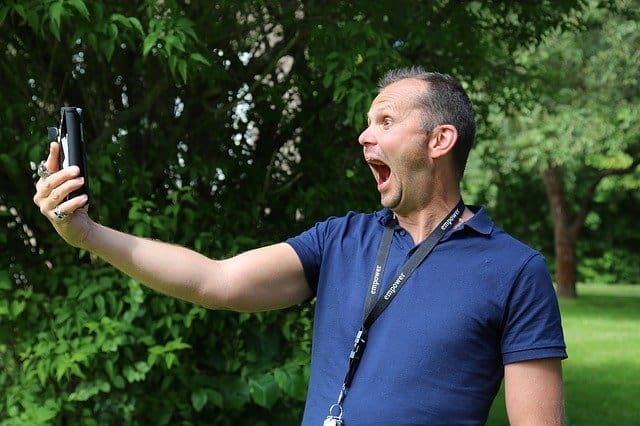Early tests advocate good results, although the algorithm needs to be refined and applied to different ethnic groups
We all (or almost all) take selfies for fun, but a new study reveals that sending one to our doctor could be a cheap and easy way to detect heart disease.
In research published in the scientific journal European Heart Journal‘, Chinese scientists show that it is possible to use a deep learning computer algorithm to detect coronary artery disease by analyzing four photographs of a person’s face.
“As far as we know, this is the first work to show that artificial intelligence can be used to analyze faces and detect heart disease. It could be used to assess the risk of heart disease, either in clinics or through patients taking selfies. ‘to conduct his own examination,” explains Zhe Zheng, who led the research and is deputy director of the National Center for Cardiovascular Diseases and vice president of Fuwai Hospital in China.
The features of the face, clues
Certain facial features are known to be associated with an increased risk of heart disease. These include thinning or grey hair, wrinkles, ear lobe creases, xanthelasmas (small yellow cholesterol esters under the skin, usually around the eyelids), and corneal arches (deposits of fat and cholesterol that appear as an opaque white, grey, or blue ring on the outer edges of the cornea). However, it is difficult for humans to use them successfully to predict and quantify the risk of heart disease.
To feed data into their artificial intelligence technology, Zheng and his team collected data on 5,796 patients from eight hospitals in China between July 2017 and March 2019. The patients underwent imaging procedures to investigate their blood vessels, such as coronary angiography or coronary computed tomography angiography. In addition, they were interviewed to find out their habits and history of diseases and four facial photos were taken with digital cameras: one front, two profile and one from the top of the head.
The researchers then tested the algorithm on another 1,013 patients from nine hospitals in China between April and July 2019. Most of the patients in all groups were of Han Chinese ethnicity.
It worked. The algorithm outperformed existing methods for predicting heart disease risk, with 80% accuracy.
“The cheek, forehead and nose gave more information to the algorithm than other facial areas. However, we need to improve the specificity, as a high false-positive rate can cause anxiety and inconvenience to patients, as well as a possible overload of medical centers with patients requiring unnecessary tests,” says Xiang-Yang Ji, another of the researchers.
The simple and efficient prediction method
“Using selfies as a screening method can enable a simple yet efficient way to filter the general population towards more comprehensive clinical evaluation. Such an approach can also be highly relevant to regions of the globe that are underfunded and have weak screening programmes for cardiovascular disease. A selection process that can be done as easily as taking a selfie will allow for a stratified flow of people that are fed into healthcare systems for first-line diagnostic testing with CCTA. Indeed, the ‘high risk’ individuals could have a CCTA, which would allow reliable risk stratification with the use of the new, AI-powered methodologies for CCTA image analysis,” Charalambos Antoniades, Professor of Cardiovascular Medicine at the University of Oxford.
The potential is huge, according to the researchers, although they recognize that the algorithm needs to be further developed and tested on larger groups of people of different ethnic backgrounds.
